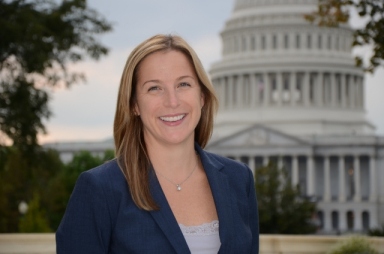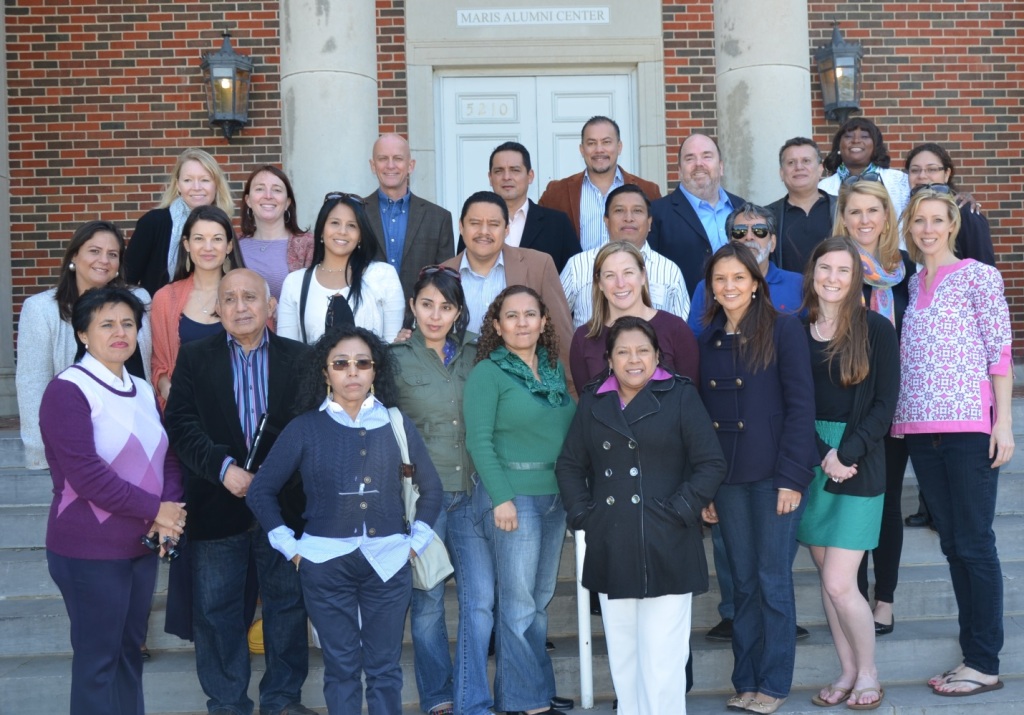
I remember well how I learned that when it comes to the welfare of a child, a single committed person can make a difference. I was in my first year at law school, having just left my Jesuit Volunteer work in some of the roughest parts of Chicago, and I had the chance to sit in the courtroom of Judge Roosevelt Dorn. Judge Dorn was feared by just about every young teenager in Inglewood because he was known for being a no-nonsense judge who would go as far as putting a status offender in prison if it meant saving them from a life of crime. That day, I saw a grandmother weep while thanking him for saving her grandson, because his unusual judicial orders to stay in school, respect his elders and take the trash out nightly had in fact worked to keep him out of trouble. He smiled and said to her “There’s no need to thank me ma’am, I will go as far as I can to save a child. It’s why I am a judge.”
It was this lesson above all that I hoped we might impart to the 14 child welfare leaders we invited to take part in our Pathways to Permanency project. I hoped that each of them would leave the experience knowing that they were empowered to help kids, even if doing so required that they push the limits. Over the now 15 years I have now spent as a child advocate, I know it is those who “think outside of the box” who make the greatest change.
And I am thrilled to tell you that we succeeded. In our last two hours together we asked our new friends to share some of the lessons they learned from this experience. As we began this conversation I expected their replies to be things like “I learned that the United States spends $25 billion on child welfare” or “I learned that the federal agency in the U.S. that handles child welfare is called the Administration of Children and Families.” But what emerged was much more powerful than I had imagined. Below are just some of the lessons our delegates reported learning:
- Institutions Harm Children: Anyone who has ever seen Dr. Charles Zeanah, one of three lead researchers on the groundbreaking Bucharest Early Intervention Project, speak will not be surprised to learn that he had the audience in tears by the end of his presentation. One judge said “ having seen this scientific evidence, I am clear we are hurting our children not helping them. More people in my country need to know this truth.” CCAI has already been invited by officials in Guatemala to do a follow up training for key leaders on the harmful effects of institutions.
- The difference one can make is not limited to your profession: Several of our delegates reported being struck by the fact that organizations such as the American Bar Association, the National Association of Social Workers, and the National Council for Juvenile and Family Court Judges were not government-appointed commissions but VOLUNTARY professional associations. And even more struck to learn what a key role many of these organizations play in the continued improvement of policy and practice in the United States.
- There is great value to partnership: During the panel presentation by key leaders in Texas’ Child Welfare System, one of the delegates asked what percentage of the funds the state had was used to support partnerships with community-based partners. The entire group was clearly struck by the answer that 90 percent of the state’s funds are used in this way. The group was equally impressed by Colorado’s success in partnering with the faith-based community to reduce the number of children in need of family. As one government official said, “When I get back to Guatemala, I will start to look for the people who can help me, because I now know I cannot do it on my own.”
- Children have a basic human right to a family: After watching a hearing in the DC Superior Court and spending the day with judges from all over Louisiana, delegates noted that a major strength of the U.S. system is its adherence to the believe that children have a basic human right to a family and at some point that right supersedes a parent’s right to parent. They were also struck by the lengths to which our legal system goes to protect that right.
- Real reform requires the law and leadership: In welcoming our group to the Superior Court of D.C., Judge Zoe Bush credited the federal government’s passage of the “Family Court Act” as the catalyst that started the important work seen throughout the courthouse today. Bryan Samuels, Commissioner of the Administration of Children and Families at the U.S. Department of Health and Human Services, pointed out to the delegation that the federal government’s focus on safety, permanence and well-being as well as the Adoption and Safe Families Act’s clear timelines are constant guides to the work that state child welfare agencies do on behalf of children. And without exception panelists throughout the visit said that the biggest differences come from a leader who has a vision and the passion needed to make others follow.
Delegates said these lessons are ones that will stay with them forever.
“I strongly believe that the 14 people that had the opportunity to spend this week in United States, had an experience that changed their minds, beliefs and hearts for the good of the children. I know many of them are already applying the information and are working hard to begin with the changes that need to be done. We know is not overnight, but we already began. “ -Delegate Karla Moldanado de Molina

